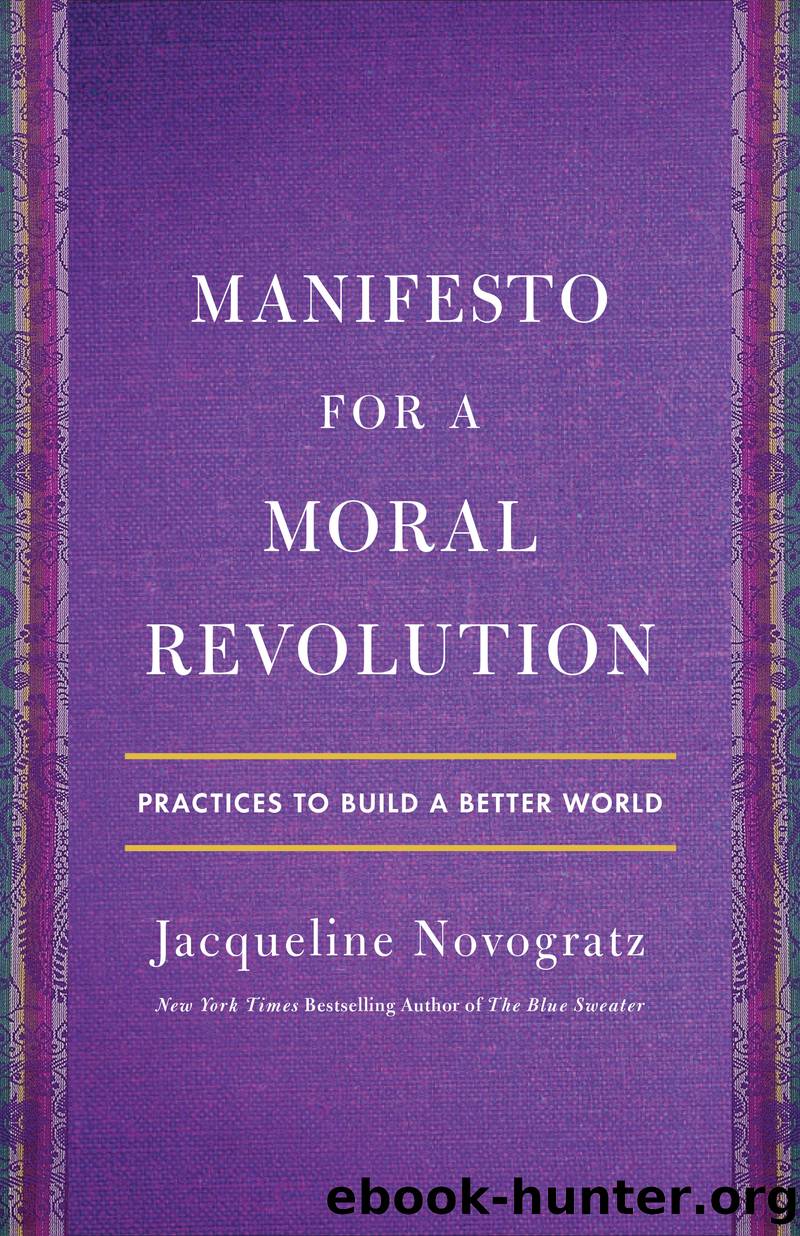Manifesto for a Moral Revolution by Jacqueline Novogratz

Author:Jacqueline Novogratz
Language: eng
Format: epub
Publisher: Henry Holt and Co.
Chapter 8
AVOID THE CONFORMITY TRAP
A few months before the financial crisis of 2008, a prominent Swiss banker invited me to serve on an advisory council for a new fund he was developing. The fund would invest in microfinance institutions that, in turn, would make small loans (from thirty to a few thousand dollars) to poor women in the developing world. “This fund is going to generate the highest financial returns in our portfolio,” the eager professional said, “and there is little risk associated with it.”
I felt a knot in the pit of my stomach. “So, you’re asking me to join an advisory in which a Swiss bank plans to earn their highest returns from the poorest women in the world, at little risk to the rich? Doesn’t that sound odd to you?”
The banker quickly responded, “Don’t think of it as making money off the poor.”
“How should I think of it, then?” I asked, “especially given your pitch that this fund will generate the highest financial returns of all the funds you manage.”
The banker became a bit sheepish. “Fair enough,” he said. “But don’t you agree that a fund investing in microfinance banks is a step in the right direction? This will bring more money into a sector that needs to grow. This is a chance to do well by doing good.” He added, “It would be great to have a voice like yours interacting with a bank like ours.”
His flattery pricked a slight feeling of mistrust. “Traditional investors with no background in low-income markets looking for high returns make me nervous,” I said.
“But you will meet wealthy investors on the advisory and build a relationship with our bank, which could help your own fund-raising,” the banker responded.
I paused to work out what was bothering me. The Swiss banker seemed genuinely thrilled that his fund was creating a positive impact. But at the same time, he’d structured a conventional financial vehicle in a system that rewards greed without considering whether or how that system would deliver on its promises to “do good” for the poor. My feelings were complex. I was, and am, a believer in the strategic imperative of providing low-income people access to affordable credit to enable them to enhance their capabilities and choices. And we at Acumen had invested our own patient capital to help build several microfinance institutions when we believed our investment would be most catalytic.
Then it dawned on me. The key difference between the Swiss banker’s approach and that of Acumen lay in how we each perceived means and ends. The banker saw financial returns as his end. If the poor were served—well, that was an ancillary benefit. He had never visited the microfinance banks in which his funds had invested; he’d never met any of their low-income borrowers. My mistrust was not of him as a person but of a system that would make decisions based on short-term profitability, not on whether those he professed to serve were seeing positive changes in their lives.
Distance easily dulls our moral imagination.
Download
This site does not store any files on its server. We only index and link to content provided by other sites. Please contact the content providers to delete copyright contents if any and email us, we'll remove relevant links or contents immediately.
| Military | Political |
| Presidents & Heads of State | Religious |
| Rich & Famous | Royalty |
| Social Activists |
Waking Up in Heaven: A True Story of Brokenness, Heaven, and Life Again by McVea Crystal & Tresniowski Alex(36999)
Empire of the Sikhs by Patwant Singh(22163)
We're Going to Need More Wine by Gabrielle Union(18066)
Hans Sturm: A Soldier's Odyssey on the Eastern Front by Gordon Williamson(16575)
Leonardo da Vinci by Walter Isaacson(11896)
The Radium Girls by Kate Moore(10902)
Educated by Tara Westover(7055)
Tools of Titans by Timothy Ferriss(6936)
How to Be a Bawse: A Guide to Conquering Life by Lilly Singh(6686)
The Last Black Unicorn by Tiffany Haddish(5065)
Permanent Record by Edward Snowden(4986)
The Rise and Fall of Senator Joe McCarthy by James Cross Giblin(4840)
Promise Me, Dad by Joe Biden(4440)
The Wind in My Hair by Masih Alinejad(4420)
The Crown by Robert Lacey(4099)
A Higher Loyalty: Truth, Lies, and Leadership by James Comey(4026)
The Iron Duke by The Iron Duke(3636)
Joan of Arc by Mary Gordon(3253)
How to be Champion: My Autobiography by Sarah Millican(3181)
